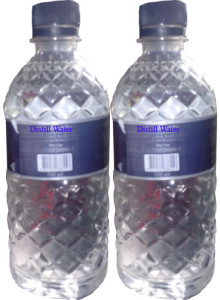Alkaline water means the pH level of the water is above seven. PH scale level is from 0 to 14, where pH level 7 is the neutral position. Below pH level 7 is acidic. Basically, pure water PH is 7, but many contaminants in the water, make change the pH. The best drinking water pH level should be 8 to 9, which is alkaline. It can be attained by alkalizing the water. Hence, it should be known what the pH level of your drinking water is.
The water contains both the ions H+ and OH–. If the pH level of water is 7, then it is called pure water that means it does not contaminants by any foreign elements, and then both the ions contain equal number. In the acidic water H+ is greater than OH–; on the other hands alkaline water contains extra OH– than H+. Furthermore acidic or alkaline water must always contain equivalent amount of positive and negative ions, but the kinds of ions may different.
As the alkaline water contains additional amount of OH– ions, hence this water must contains some other types of positive ions such as calcium, sodium or magnesium to balance it.
Ca2+ + 2OH– → Ca(OH)2
Similarly, the acidic water contains excess amount of H+ ions, hence this water must contains some other types of negative ions such as bicarbonate HCO3– (most common) to balance it.
HCO3– + H+ → H2CO3
In these discussions we know that alkaline water contains various important metal ions such as sodium, calcium or magnesium.
Benefits of alkaline water
There are lots of benefits of alkaline water such as it can boost our metabolism, decrease acid in our bloodstream, cells and tissues and help our body absorb nutrients more promptly. It helps us to balance our body’s pH, since we consume high acidic foods which lead to our body to acidic.
Many people believe that alkaline water can perform as an antioxidant, but it has no evidence. It has ability to neutralize the risky free radicals, because it is able to release electrons.
How to make water alkaline
Firstly check the pH of your water with a pH kit. If the water is not alkaline, then you can alkaline it. Water can be alkaline by different ways as like using baking soda, lemons, adding pH drops, by water ionizer and more other methods. After alkalizing the water the pH range may be 8 to 9.
Water ionizer can be best choice, if it is available. It contains both the positive and negative electrodes. By using these electrodes water can be separated into alkaline water and acidic water. Water ionizer can be used in broad range applications. Moreover different ionizer water filter are found in the market for home applications.
